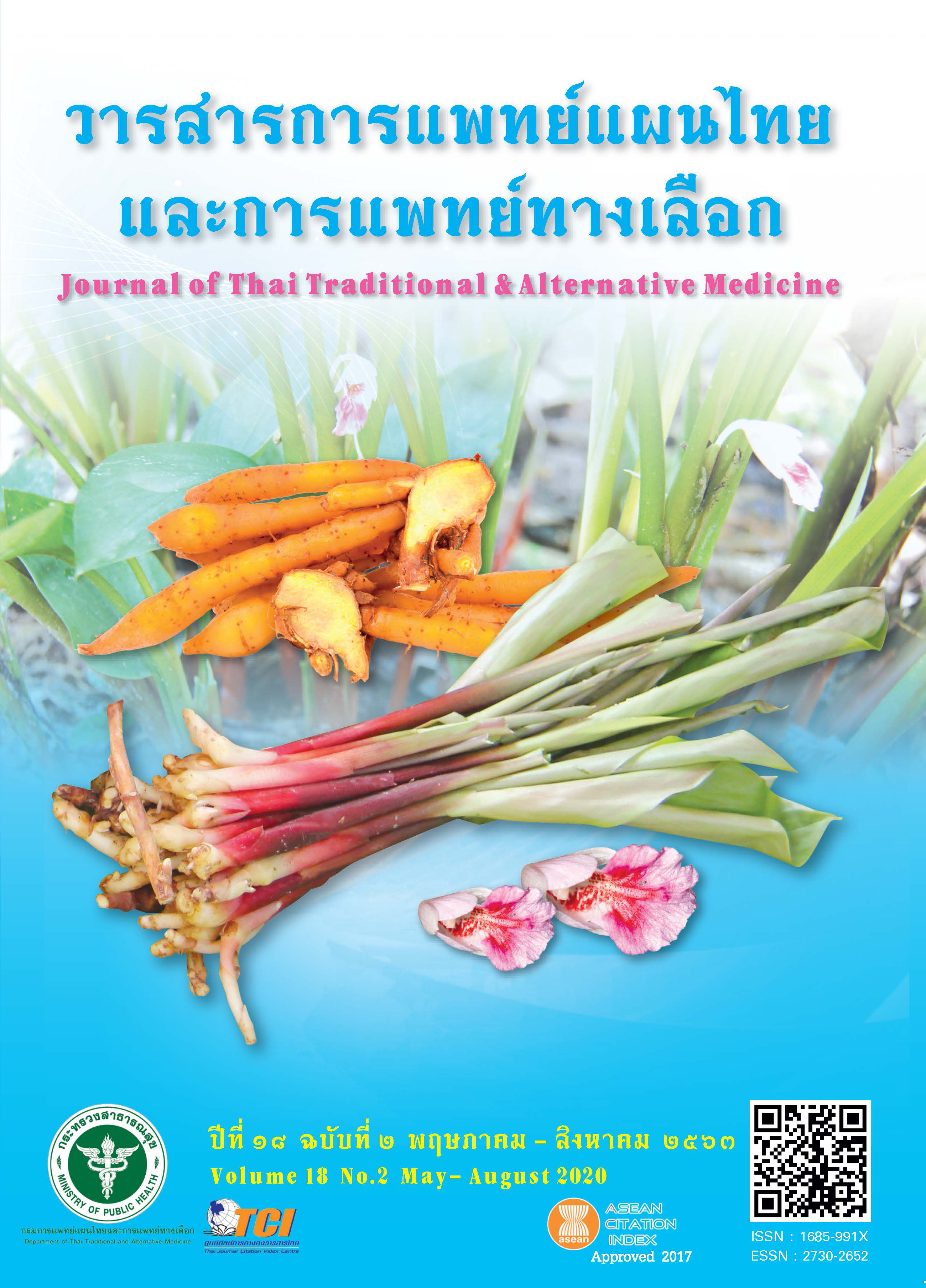Effectiveness of Fixed Acupoint Acupuncture in Treatment of Primary Dysmenorrhea in Yang Chum Noi Hospital, Sisaket Province
Main Article Content
Abstract
Acupuncture is an alternative medicine that well known in Thailand. This is a method of piercing a needle to cure disease by using many sizes needles pierced the location of acupuncture points on various sites of the body using the principles of Chinese medicine that have been recorded since ancient times. The location of acupuncture points is important and relevant to various organs in the body. Acupuncture results in better blood circulation. Tissue in the area of injury has been repaired to returns to normal conditions. The study of the effectiveness of the treatment of primary dysmenorrhea by acupuncture has objectives: 1) To study the effectiveness of fixed acupoint acupuncture in treatment of primary dysmenorrhea. 2) To compare the effectiveness of fixed acupoint acupuncture in treatment and modern medicine in treatment of primary dysmenorrhea. 3) To assess the quality of life and satisfaction. Research design was Randomized Controlled Trial (RCT). The samples consisted of 70 women aged 15-45 years who were diagnosed with primary dysmenorrhea. The treatment group was divided into 2 groups. The experimental group consisted of 35 acupuncture patients, the control group consisted of 35 modern medicine treatment. The results showed that: 1) The experimental group and the control group had a mean level of pain before joining the program at a moderate level. After joining the program, They were at low level. 2) The mean scores of pain in experimental and control groups decreased. The results were analyzed by t-test. Results showed that the 2nd, 3rd and 4th time were significantly different at p-value < 0.05, the experimental group had less pain than the control group. 3) After participating in the program, the experimental group had an average quality of life evaluation more than the control group with statistical significance at p-value < 0.05. Suggestion. Acupuncture is a treatment option that can be used to treat various diseases, especially in patients with current drug allergy and should be widely publicized.
Article Details
References
Hasanine T, Promkiam-on B, Jirapinitwong S, editors. Acupuncture & moxibustion volume 3. Nonthaburi: The Agricultural Cooperative Federation of Thailand Limited; 2011. p. 184-8. (in Thai)
Wanarat L, Hasanine T, Techadamrongsin Y, editors. Acupuncture & moxibustion volume 1. Bangkok: The War Veterans Organization of Thailand under Royal Ratronage of His Majesty the King; 2008. p. 207. (in Thai)
STRICTA 2010; Standards for Reporting Interventions in Controlled Trials of Acupuncture. Checklist for STRICTA 2010. [Internet]. [cited 2011 Jun 1]; Available from: https://www.stricta.info/checklist.html.
Lewers D, Clelland J A, Jackson J R, Varner R E, Bergman J. Transcutaneous electrical nerve stimulation in the relief of primary dysmenorrhoea. Physical Therapy. 1989;69(1):3-9.
MahatNirunkul S, Silpakit P, Pompaisarnchai W. WHOQOL–100 & WHOQOL–BREF–THAI. Chiang Mai: Suan Prung Psychiatric Hospital; 1997. (in Thai)
Smith C A, Crowther C A, Petrucco O, Beilby J, Dent H. Acupuncture to treat primary dysmenorrhea in women: A randomized controlled trial. Evidence-Base Complementary and Alternative Medicine. 2011;1-11.
Iorno V, Burani R, Bianchini B, Minelli E, Martinelli F, Ciatto S. Acupuncture treatment of dysmenorrhea resistance to conventional medical treatment. Evidence-Base Complementary and Alternative Medicine. 2008;5(2):227-30.
Witt C M, Reinhold T, Brinkhaus B, Roll S, Jena S, Willich S N. Acupuncture in patients with dysmenorrhea: A randomized study of clinical effectiveness and cost – effectiveness in usual care. Am J obstet Gynecol. 2008;198(2):166.e1-6.


